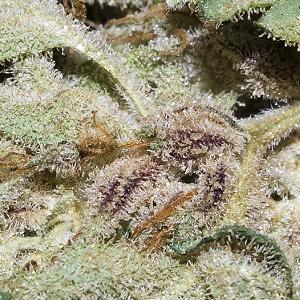New Research Finds Habitual Marijuana Consumption Not Linked To Lung Cancer
A new study reported on this week at the annual meeting for the American Association of Cancer Research has found that habitual marijuana consumers have no more increased risk of lung cancer than casual consumers, or those who don’t consume at all. This was found to be true regardless of how many times a day a person consumes cannabis, and regardless of how long they’ve been a consumer.
The study included data from six case-control studies conducted in the United States, Canada, the United Kingdom, and New Zealand. It included a subject pool of 2,159 lung cancer cases and 2,985 controls – the studies were part of the International Lung Cancer Consortium (ILCCO), an international group of lung cancer researchers.
Dr. Zhang of the University of California performed two analyses, one which compared all lung cancer cases and all controls, regardless of current or past tobacco use. Then, the analysis was restricted to those who had never smoked tobacco, which consisted of 370 cancer cases and 1,358 controls. Dr. Zhang also adjusted the models to account for age, sex, etc.. Habitual use was defined as one joint per day, per year.
When compared with cannabis smokers who also used tobacco, habitual pot smokers had no significant increase in cancer risk.
According to the Oncology Report, which posted today about the study, “In an analysis of marijuana smokers that excluded tobacco smokers, there were no significant differences in any of the comparisons, including habitual vs. nonhabitual use; number of joints smoked per day; duration of up to 20 years or duration of more than 20 years. The difference in risk is likely related to chemical additives in commercial cigarettes that aren’t present in most methods of inhaling marijuana smoke.
As a general recommendation, smoking anything isn’t good for the respiratory system, said Dr. Alberts, chief medical officer of the Moffitt Cancer Center, Tampa. But for patients using medical marijuana, the benefit could outweigh the risks.”
“You can think of it as similar to a CT scan. Radiation isn’t good, but if the scan is something beneficial and the risk is low, you take it. If cannabis is indicated, and if it’s legal, and if there’s literature backing up the indication for use, then you weigh the risk of smoking and the benefit it could bring, and make the decision”, stated Dr. Zhang.
This new study validates research in 2006 by Dr. Taskin of the University of California which found that not only does marijuana consumption not lead to lung cancer, it may actually protect against it.
A new study reported on this week at the annual meeting for the American Association of Cancer Research has found that habitual marijuana consumers have no more increased risk of lung cancer than casual consumers, or those who don’t consume at all. This was found to be true regardless of how many times a day a person consumes cannabis, and regardless of how long they’ve been a consumer.
The study included data from six case-control studies conducted in the United States, Canada, the United Kingdom, and New Zealand. It included a subject pool of 2,159 lung cancer cases and 2,985 controls – the studies were part of the International Lung Cancer Consortium (ILCCO), an international group of lung cancer researchers.
Dr. Zhang of the University of California performed two analyses, one which compared all lung cancer cases and all controls, regardless of current or past tobacco use. Then, the analysis was restricted to those who had never smoked tobacco, which consisted of 370 cancer cases and 1,358 controls. Dr. Zhang also adjusted the models to account for age, sex, etc.. Habitual use was defined as one joint per day, per year.
When compared with cannabis smokers who also used tobacco, habitual pot smokers had no significant increase in cancer risk.
According to the Oncology Report, which posted today about the study, “In an analysis of marijuana smokers that excluded tobacco smokers, there were no significant differences in any of the comparisons, including habitual vs. nonhabitual use; number of joints smoked per day; duration of up to 20 years or duration of more than 20 years. The difference in risk is likely related to chemical additives in commercial cigarettes that aren’t present in most methods of inhaling marijuana smoke.
As a general recommendation, smoking anything isn’t good for the respiratory system, said Dr. Alberts, chief medical officer of the Moffitt Cancer Center, Tampa. But for patients using medical marijuana, the benefit could outweigh the risks.”
“You can think of it as similar to a CT scan. Radiation isn’t good, but if the scan is something beneficial and the risk is low, you take it. If cannabis is indicated, and if it’s legal, and if there’s literature backing up the indication for use, then you weigh the risk of smoking and the benefit it could bring, and make the decision”, stated Dr. Zhang.
This new study validates research in 2006 by Dr. Taskin of the University of California which found that not only does marijuana consumption not lead to lung cancer, it may actually protect against it.

















Comment